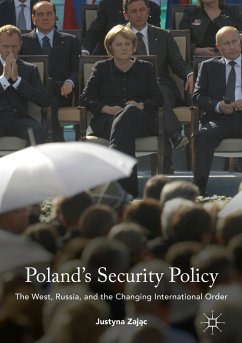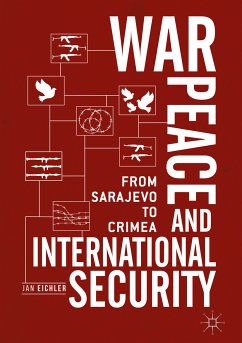Dieser Download kann aus rechtlichen Gründen nur mit Rechnungsadresse in A, B, BG, CY, CZ, D, DK, EW, E, FIN, F, GR, HR, H, IRL, I, LT, L, LR, M, NL, PL, P, R, S, SLO, SK ausgeliefert werden.
"Justyna Zajac's book delivers an in-depth analysis of all those determinants along with factual explanations. ... The author also highlights certain advantages for Poland arising from the Ukrainian conflict, such as the strengthening of cooperation with the US ... Zajac's book provides a very interesting insight into Poland's security policy from the period of post-communist transition until the present day." (Anna Antczak, Europe-Asia Studies, Vol. 70 (2), March, 2018)









